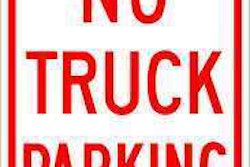Image and perception are two things that can be easily swayed. The problem is, people don’t remember having a “good” perception as readily as they remember a “bad” one – it has to do with a very basic part of our evolving intelligence. As hunters and gatherers, we learned quickly to avoid the blue mushrooms and meat that smelled funny because horrible, adverse things happened when we ate them. Fortunately, our ancestor selves had more good experiences than bad, but they needed to remember those bad ones in order to live long enough to have good ones, so the bad stays with us – even today – longer than the good. It’s self-preservation.


In his own defense on one of the Facebook posts, he stated he had attempted to do a ride-along and no one would let him. (I can’t imagine why, Brooks.) He was offered more than plenty of ride-alongs on that thread, and eventually did get into a truck with an articulate, safe driver.
This journalist went back and revisited his original idea from the other side – which just happens to be our side. He had the integrity to forgo the crash-and-burn statistics and present a side of the story that is actually helpful, and imparted safety information, instead of instilling fear and hatred. It was in no way a retraction to the original slash-and-burn story, and it won’t ever get the numbers, ratings or response the first one did, but Brooks Jarosz earned my respect for knowing this and doing the story anyway.
The media and news is no longer an information game, it’s a numbers game. In a numbers-driven and highly competitive industry, integrity is often set aside for the win. (Reference: KARK 4 and the astoundingly bad “problem solving” skills of Shellie Bailey-Shah.)
So Brooks, I apologize if I may or may not have called you a pencil-neck college boy from Columbus who wouldn’t know the inside of a truck if it ran up and bit him. I know I speak for at least three other people in the trucking industry, and my Momma, when I say thank you for attempting to plant the seed of learning to share the road instead of an “us against you” climate on the highways. We appreciate it.










